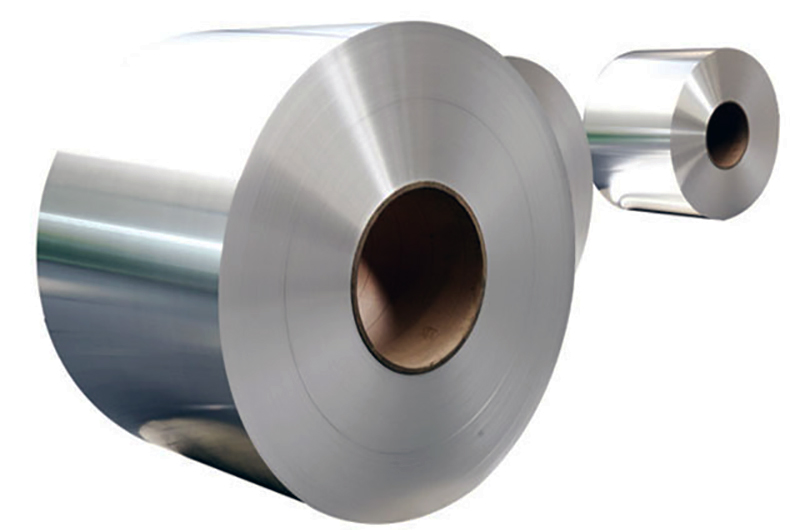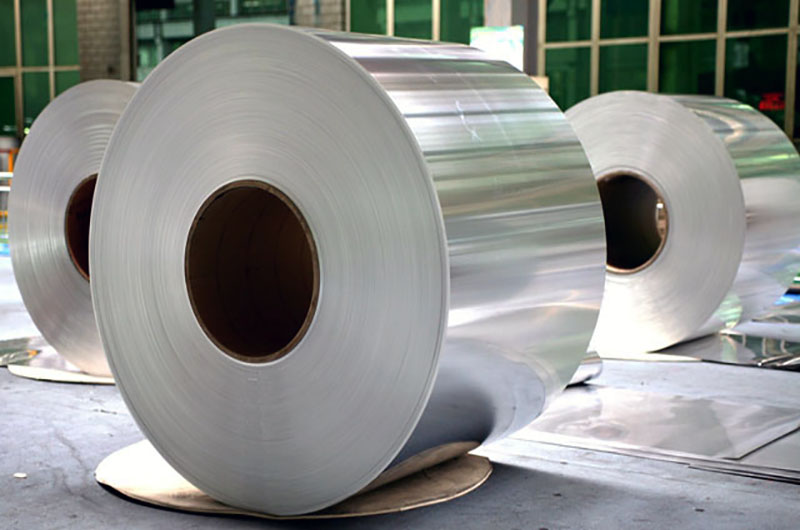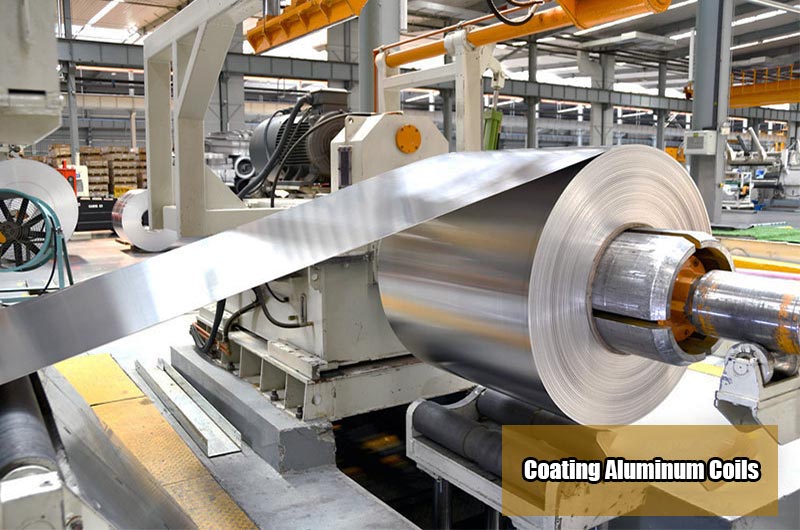Aluminum Coil for Ropp Caps Introduction
When you crack open a cold beverage, the last thing you think about is the cap sealing the container. Yet, the ROPP (Roll-On Pilfer-Proof) cap plays a critical role in maintaining the freshness and security of the contents.
These caps are widely used in the packaging industry and are often made from aluminum coil sheets.
In this comprehensive article, we will explore the world of aluminum coil sheets for ROPP caps, what ROPP caps are, why they are used, common ROPP caps in everyday life, the advantages and disadvantages of aluminum in this application, alloy selection, surface treatments, commonly used specifications, and common production challenges.

What are ROPP Caps?
ROPP Cap Definition
The Roll-On Pilfer-Proof (ROPP) cap is a type of closure used to seal bottles and containers securely. It is known for its tamper-evident and airtight features, ensuring the contents remain fresh and uncontaminated.
ROPP caps are widely used in the pharmaceutical, food and beverage, and cosmetic industries.
How ROPP Caps Work
ROPP caps are designed with an aluminum shell that fits over the bottle's neck. The cap features a thread on the inside that matches the thread on the bottle neck. When the cap is rolled onto the bottle, the threads interlock, creating a secure seal.
To open the bottle, the cap is typically unthreaded and removed. The tamper-evident feature ensures that the cap cannot be removed without leaving visible evidence of tampering.
Why are ROPP Caps Used?
1. Tamper-Evident Security
One of the primary reasons for using ROPP caps is their tamper-evident design. When the cap is first removed, it often leaves a visible ring or band on the bottle neck, indicating that the seal has been broken. This is crucial in industries like pharmaceuticals, where product integrity and safety are paramount.
2. Airtight Seal
ROPP caps provide an airtight seal, preventing the contents from being exposed to oxygen or contaminants. This feature is essential for preserving the freshness and shelf life of various products, including beverages, food, and medicines.
3. Professional Appearance
ROPP caps lend a professional and premium appearance to products. They are commonly used in high-end beverages, cosmetics, and pharmaceuticals, enhancing the product's perceived value.
Common ROPP Caps in Everyday Life
Aluminum Coil Sheet for Beverage Caps
Beverage caps are among the most common ROPP caps in everyday life. They are used for sealing various beverages, including carbonated drinks, bottled water, and fruit juices.
Aluminum Coil Sheet for Pharmaceutical Caps
Pharmaceutical ROPP caps are essential for sealing bottles containing medications, syrups, and other healthcare products. The tamper-evident feature ensures product safety.
Aluminum Coil Sheet for Cosmetic Caps
Cosmetic products, such as perfumes and high-end skincare items, often feature ROPP caps to maintain product quality and add an element of luxury.
Aluminum Coil Sheet for Food and Condiment Caps
Many food products, including condiments like ketchup and salad dressings, are sealed with ROPP caps to ensure freshness and prevent contamination.

Advantages of Aluminum in ROPP Caps
1. Lightweight
Aluminum is incredibly lightweight, making it an ideal choice for ROPP caps. The low weight of aluminum caps reduces shipping costs and minimizes the environmental impact during transportation.
2. Corrosion Resistance
Aluminum is naturally corrosion-resistant, ensuring that ROPP caps remain uncontaminated and structurally intact over time.
3. Excellent Formability
Aluminum can be easily formed into various cap shapes and sizes, allowing for customization and flexibility in design.
4. Recyclability
Aluminum is highly recyclable, making it an eco-friendly choice for ROPP caps. The recycling process requires significantly less energy compared to primary aluminum production.
Disadvantages of Aluminum in ROPP Caps
1. Cost
The initial cost of producing aluminum ROPP caps can be relatively high compared to some other materials. However, the long-term benefits often justify the higher upfront investment.
2. Denting
Aluminum caps can be susceptible to dents from impact or mishandling. While dents typically do not affect the cap's functionality, they may impact the product's aesthetic appeal.
Applications and Alloy Selection
Aluminum Alloy Choices for ROPP Caps
Aluminum ROPP caps are typically made from specific aluminum alloys chosen for their ideal properties. The choice of alloy may vary based on the specific requirements of the product and industry. Commonly used alloys for ROPP caps include:
- 8011 Aluminum Coil Sheet for ROPP Caps: This alloy offers excellent formability and corrosion resistance. It is widely used in the production of ROPP caps for beverages, pharmaceuticals, and cosmetics.
- 5182 Aluminum Coil Sheet for ROPP Caps: 5182 is often used for ROPP caps that require high strength and formability, such as caps for carbonated beverages and other pressurized containers.

How to Choose Alloys for ROPP Caps
When selecting an alloy for ROPP caps, considerations should include:
- Corrosion resistance: Ensure the alloy is resistant to corrosion, particularly if it will be used for sealing liquids or pharmaceuticals.
- Strength and formability: Choose an alloy that offers the desired strength and formability for the specific cap design and requirements.
- Tamper-evident features: Some alloys may be better suited for tamper-evident applications, which require the cap to deform visibly when opened.
Surface Treatments for Aluminum ROPP Caps
1. Anodized aluminum coil sheet for ropp caps
Anodization is a common surface treatment for aluminum ROPP caps. It enhances the aluminum's corrosion resistance and offers an attractive finish. Anodized caps can come in various colors and provide additional protection against wear and tear.
2. Lacquering aluminum coil sheet for ropp caps
Lacquering is often used to provide an additional layer of protection for ROPP caps. It can enhance the cap's resistance to chemicals, humidity, and UV radiation, ensuring the contents remain uncontaminated.
Commonly Used Specifications for Aluminum ROPP Caps
The specifications for aluminum ROPP caps can vary based on the product and industry requirements. Common specifications include cap diameter, thread size, and liner types.
ROPP caps also come in various sizes, from 18mm to 38mm, catering to different bottle neck diameters and product needs.
Common Problems in the Production Process
1. Improper Sealing
An improper seal can lead to leakage or contamination of the product. It is essential to ensure that the ROPP cap is correctly threaded onto the bottle to create a secure seal.
2. Tamper-Evident Failure
In some cases, the tamper-evident feature may not function correctly, failing to leave visible evidence of tampering when the cap is first removed. Quality control measures are essential to ensure the integrity of this feature.
3. Alloy Selection Mismatch
Choosing the wrong alloy for a specific ROPP cap application can lead to issues such as corrosion or insufficient strength. Proper alloy selection is crucial for the cap's long-term performance.
Conclusion
Aluminum ROPP caps play a crucial role in maintaining the integrity and safety of various products in industries like pharmaceuticals, food and beverage, and cosmetics. Their lightweight, corrosion-resistant, and recyclable properties make them an environmentally friendly choice, while the tamper-evident feature ensures product security.
When selecting an alloy for ROPP caps, considerations should be given to corrosion resistance, strength, and tamper-evident requirements. With proper surface treatments and quality control in the production process, aluminum ROPP caps are a reliable and efficient solution for a wide range of products in our everyday lives.

